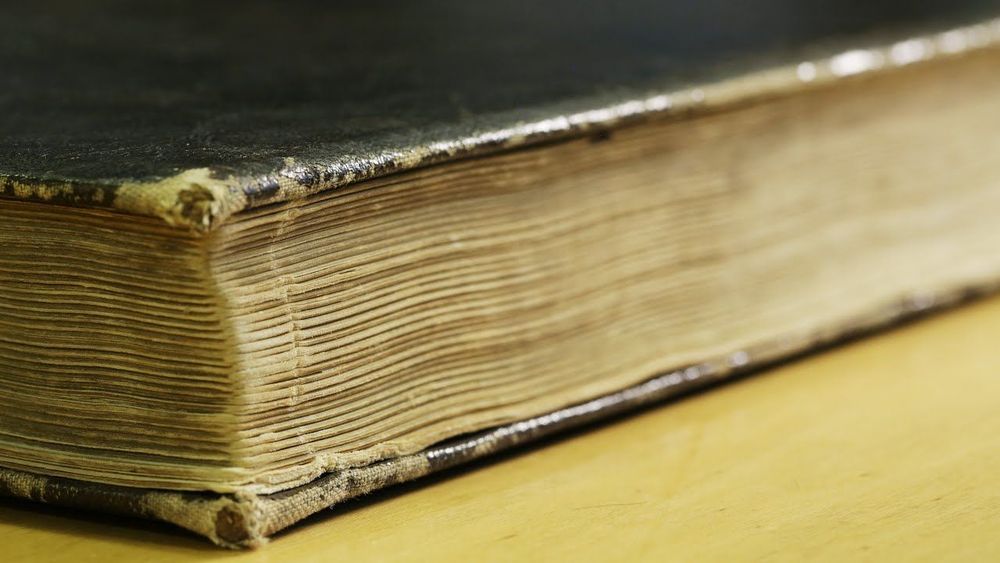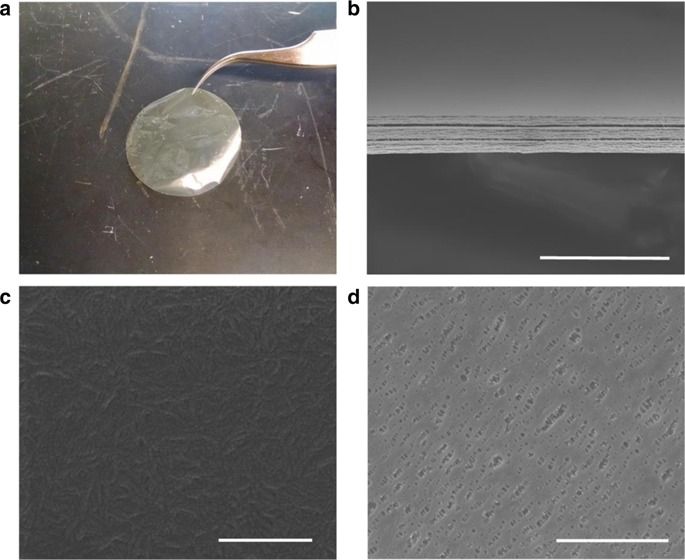Page 8560
May 7, 2019
The chemicals in sunscreen seep into your bloodstream after just one day, FDA says
Posted by Quinn Sena in category: futurism
Study authors say the results don’t mean consumers should stop using sunscreen, but noted that more research needs to be done.
Android Q introduces a bunch of new features, while putting protections in place to provide even more transparency and control over your data.
May 7, 2019
World’s largest honey bee makes rare hallucinogenic honey
Posted by Quinn Sena in category: futurism
May 7, 2019
Nanoporous aramid nanofibre separators for nonaqueous redox flow batteries
Posted by Quinn Sena in category: energy
Redox flow batteries are attractive for large-scale energy storage due to a combination of high theoretical efficiencies and decoupled power and energy storage capacities. Efforts to significantly increase energy densities by using nonaqueous electrolytes have been impeded by separators with low selectivities. Here, we report nanoporous separators based on aramid nanofibres, which are assembled using a scalable, low cost, spin-assisted layer-by-layer technique. The multilayer structure yields 5 ± 0.5 nm pores, enabling nanofiltration with high selectivity. Further, surface modifications using polyelectrolytes result in enhanced performance. In vanadium acetylacetonate/acetonitrile-based electrolytes, the coated separator exhibits permeabilities an order of magnitude lower and ionic conductivities five times higher than those of a commercial separator. In addition, the coated separators exhibit exceptional stability, showing minimal degradation after more than 100 h of cycling. The low permeability translates into high coulombic efficiency in flow cell charge/discharge experiments performed at cycle times relevant for large-scale applications (5 h).

Circa 2016
Terahertz imaging can scan pages that would be too fragile to touch.
Continue reading “MIT uses radiation to read closed books” »
May 7, 2019
Teslas Can Now Detect Broken Parts and Pre-Order Replacements
Posted by Quinn Sena in category: transportation
A new update pushed to Tesla vehicles includes a “live issue detection” feature, which enables them to “keep tabs on certain components to let you know if they need replacing and order parts ahead of your next service visit,” according to a company statement sent to Electrek.
Once the vehicle figures out which replacement part it needs, it pre-orders it to the closest Tesla Service Center. Owners can then schedule a visit through the Tesla app.
May 7, 2019
Here’s why scientists think discovering aliens is inevitable and imminent
Posted by Michael Lance in categories: alien life, chemistry
Amino acids, just like those that make up every protein in our bodies, have been found in the tails of comets.
Because, following a string of remarkable discoveries over the past two decades, the idea of alien life is not as far-fetched as it used to seem.
Discovery now seems inevitable and possibly imminent.
Continue reading “Here’s why scientists think discovering aliens is inevitable and imminent” »
May 7, 2019
700 Years of Persian Manuscripts Now Digitized and Available Online
Posted by Quinn Sena in category: government
Too often those in power lump thousands of years of Middle Eastern religion and culture into monolithic entities to be feared or persecuted. But at least one government institution is doing exactly the opposite. For Nowruz, the Persian New Year, the Library of Congress has released a digital collection of its rare Persian-language manuscripts, an archive spanning 700 years. This free resource opens windows on diverse religious, national, linguistic, and cultural traditions, most, but not all, Islamic, yet all different from each other in complex and striking ways.
“We nowadays are programmed to think Persia equates with Iran, but when you look at this it is a multiregional collection,” says a Library specialist in its African and Middle Eastern Division, Hirad Dinavari. “Many contributed to it. Some were Indian, some were Turkic, Central Asian.” The “deep, cosmopolitan archive,” as Atlas Obscura’s Jonathan Carey writes, consists of a relatively small number of manuscripts—only 155. That may not seem particularly significant given the enormity of some other online collections.

















